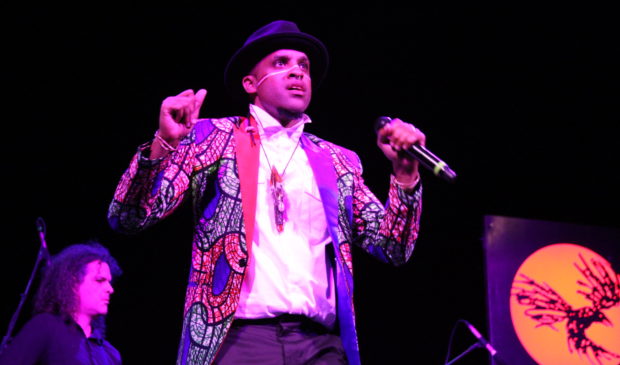Music leaders eye city creation of Black Live Music Fund
Tuesday, June 16, 2020 by
Chad Swiatecki The vice chair of the Music Commission has called for the city to create a Black Live Music Fund that would support the business interests of black musicians, possibly with money from the recently created Live Music Fund.
In a recent statement made at a meeting of the working group formed to determine how to use the Live Music Fund, Jonathan “Chaka” Mahone said decades of racism and denial of opportunities for black artists necessitate the creation of a fund to bring equity to the black music community in Austin.
“Every single established Austin music organization that is not led by black people has glaring holes in its ability to address and/or acknowledge the historic underpinnings of racial discrimination in this city. There is no Live Music Capital without black musicians, period,” he said before referencing historic black-owned music venues and artists that have been overlooked while the city’s music reputation has grown. “Leaders are worried if there will be a music scene left after Covid, but what about the fact that there may not be a black community left due to gentrification? Does anyone left in the established and privileged Austin music industry care about that?”
Mahone called for half of the money in the Live Music Fund to be allocated for the new use and put toward creation of a black-owned music venue, small grants to artists, development of technology to promote black music in Austin, dedicated online radio and streaming platforms, funding for artist education, and 75 percent of all funds directed to native Austin artists and organizations with 20 or more years of history.
Mahone told the Austin Monitor he has spoken with city and music community leaders about his proposal and will bring it to the working group next week for further discussion. The group is expected to deliver its recommendations to the Music Commission in July, which would set the table for further debate ahead of a formal recommendation to City Council.
“We have everything we need to have it succeed; the same way that anything gets traction is you work towards it. There are plenty of people on board. I’ve talked with musicians and many other people in different sectors and people are ready to take action on this,” he said. “If these demands aren’t met we will continue to put pressure on the officials that can make it happen.”
Council approved the creation of the Live Music Fund in September, allocating a portion of Hotel Occupancy Tax revenue toward the goal of creating programs and direct funding to assist Austin musicians. It was initially forecast to start at $3.5 million per year in funding, but the decline in hotel bookings has dramatically reduced money available to that and other funds that use hotel tax money.
Rick Carney, chair of the Music Commission, said he supports Mahone’s proposal. Still in question, he said, is whether the state’s restrictions on the use of hotel tax revenue will make it easier to pursue other sources to fund the initiative.
“I definitely agree with everything Chaka put out in the meeting as far as how Austin has been systematically racist and the music industry has not been a good ally. We have a huge debt of gratitude we need to pay back to black artists and artists of color. In regards to the idea of the Black Live Music Fund, I definitely agree in principle,” he said.
“There could be easier paths to take that will yield more results down the road, not just immediately but in a way that’s sustainable. That should be the goal, because a one-time fix doesn’t get us where we want to be. The other problem we need to look at is if this is tied to Hotel Occupancy Tax, we know that is going to be really below what expectations were. I think there are better funding opportunities for what Chaka has in mind and I feel it would almost be limiting to apply this just to live music. We need to apply it to all matters of the music business.”
Photo made available through a Creative Commons license.
The Austin Monitor’s work is made possible by donations from the community. Though our reporting covers donors from time to time, we are careful to keep business and editorial efforts separate while maintaining transparency. A complete list of donors is available here, and our code of ethics is explained here.
You're a community leader
And we’re honored you look to us for serious, in-depth news. You know a strong community needs local and dedicated watchdog reporting. We’re here for you and that won’t change. Now will you take the powerful next step and support our nonprofit news organization?









